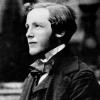Leaderboard
Popular Content
Showing content with the highest reputation on 03/25/18 in all areas
-
2 points
-
Exhausts? A BH has no exhaust at all: Once the Schwarzchild radius of any mass is reached, an EH is formed, where the escape velocity is "c". Even Hawking radiation if valid, does not entail any particle crossing from the inside of a BH to outside. The familiar polar jets we see apparently exiting the polar regions of BH,s are actually in spiraling matter that has spun around and twisted by the BH's spin and thrown out at the polar regions. It is not matter/plasma that has ever crossed the EH.1 point
-
Majority of the representatives of the voting population. A well-organized group of single-issue voters was behind prohibition, which was enough to sway enough elections. In many elections, the difference between winners and losers is not very big. A 5-10% bloc can get someone elected, piggybacking on the rest of the voters who care about many issues. One need look no further than today's issues to see that the way congress votes does not always reflect the will of the majority.1 point
-
Today I learned that Sulphur hexafluoride is the gas that gives you a low/deep voice like Xenon(the opposite of helium). Sulphur hexafluoride is also an extremely potent greenhousegas...a global warming potential of 23,900 times that of CO2. Sulphur hexafluoride is also extremely long-lived, is inert in the troposphere and stratosphere and has an estimated atmospheric lifetime of 800–3200 years. https://en.wikipedia.org/wiki/Sulfur_hexafluoride1 point
-
Earlier I said " Surely, if you wish to turn a believer, you should torque to him. " Any one that will let you socket to him. Edit: On further reflection you may want to be adjustable in the approach you take. The whole subject is open ended. It's very easy to ratchet up the associated emotions. You just don't want to come out of it looking like a tool, or putting a spanner in the works. Well that's enough monkeying around for the moment*. * We all know what moments are associated with, right?1 point
-
I'm working on a Theory of Pa: Solitaryverse, based on unclegravity. But it is half baked at best and not near ready for Speculations.1 point
-
1 point
-
It’s pseudoscientific delusion based on pink unicorns. What made you post such a thing on a science site in the physics section? But hey, Im open to learn new things so lets see the „anti gravity” math.1 point
-
It's it a very Abrahamic-centric (is that a word?) perspective, which is no surprise given we are on a predominantly Western site. But the assumption that most religions are similar enough to the Abrahamic faiths that all the same criticisms can be levelled at them, like Hank's arse, i think is incorrect. Take the Hindu concept of afterlife for instance: you will be reincarnated regardless of whether you believe in the religion or not. Some sects believe your actions in this life influence that reincarnation and some don't: but most Hindus believe that eventually all people will end up back as part of God (Atman) - this is regardless of the belief: hindu, muslim, atheist. You don't have to kiss Hank's arse to receive that 'benefit'. So that particular criticism can't be levelled at Hinduism. And so on for Buddhism, Taoism, Confucianism, Shinto... All i'm saying is that the Abrahamic faiths aren't the only religions, and most other religions are different enough that the particular criticisms in Hank's arse video aren't applicable to them. I think it's relevant because when asked how to turn a believer, quite what they believe in is pertinent.1 point
-
To be clear from the start, Gee, i am definitely not a Knipperdolling ( https://1word1day.livejournal.com/680265.html ) but,like yourself, i haven't the slightest animosity towards anyone who peacefully follows any faith - whatever gets you through the night, as we say. Even though i don't follow any religious faith, i would still call myself a religious man, ( in the early sense of the word " religious " as derived from the Latin " religare ", which can mean " bind together " ), as i do believe that all Life is physically and consciously bound together: everything that exists is simply a different expression of the same essence - whatever that essence may be. Do you not regard the Bible as a religious book at all? I think it is , in one way, a religious book, in that it was, and is, an influence on the so-called revealed Abrahamic faiths, but i would never go as far as to call any book divine or sacred. I do agree that the Bible is a valid source for studying consciousness: religions definitely affect and infect consciousness,veneficially as well as beneficially, so they can't be ignored. If not taken literally, as others have said, there are singular truths to be found in the Bible, even if not the absolute, ineffable Truth, and these truths don't really need to have a religious context to be true so "... separate out Religion ", as you said. Among those truths i can see definite psychological lessons, couched in allegory and metaphor: The Garden of Eden. for example, is obviously not a real geographical place but a psychological condition ( a state of Truth, perhaps ) that i think is the genuine, initial state of the unconditioned, undivided conscious mind - a state of the innocence/ignorance of childhood that is not separated from a unified one-ness with Nature, ( egoless, in fact ), which we lose as we rightly grow into adulthood, develop that ego and a separative self-identity and " fall " into the ways of the world around us. In a sense, then, we " leave the Garden " when we put-off childhood and i think that what we call the search for Truth is really an attempt to get back into Eden. ( Do you know the chorus of Joni Mitchell's song " Woodstock "? She says as much in a scientific and psychological way. I don't think i can use the lyrics here without permission - you probably know more than i do about copyright laws ). Obviously we can't go back to our actual childhood, but i think it is possible to reconnect, as a wiser adult, with that first unconditioned conscious state of mind that existed before the brain did get conditioned through upbringing, education etc. In that first pre-conditioned state, right and wrong, ( not necessarily equivalent to good and bad ), don't seem to impinge on consciousness until we " eat of the fruit ", leave the Garden and gain that new knowledge which, in turn, gives birth to the universal, intrapersonal conflict between the perceived good and bad sides of the personality - a conflict that ideally culminates in the realisation of the metaphor of the Christian crucifixion and a return to the Garden. Witness to this is a famous Bible quote : " Unless you change and become like little children, you will by no means enter the kingdom of Heaven ". The kingdom of Heaven being also a state of mind - not a place of reward for good behaviour after we die. From the allegorical Garden we go, figuratively, through what Hermann Hesse called " the Hell of myself ", inclusive of Purgatory and Limbo ( again, all states of mind encountered while alive, not after death ). At the end of this " Pilgrim's Progress " we arrive at the metaphorical, psychological crucifixion and death of the old self ( " the son of Man " ) and the Phoenix-like resurrection of a new faith-free enlightened self ( " the son of God " ). I think this is the true meaning of a " virgin-birth ". Again, not after death. What is re-born is not a re-birth of the old consciousness but a totally new consciousness completely unconnected with the old, dead consciousness. I think i've been a bit incoherent with that last paragraph so i'll try to explain what i was trying to get at with this other cryptic ( paraphrased ) Biblical quote: "He who loses himself shall find himself ". Which is still relevant today and can be clearly linked to Jung's process of" Individuation " and Freud's model of the Psyche and ultimately , again, to that psychological death of the self "on the cross". If you relate Christ/ Good Thief/Bad Thief to Ego/Superego/Id, you may see some sense in that - or not, of course. If there is a link, however, it could have startling implications. So, at last, " .... How do we find Truth? ", you ask. Well, when we speak of it, i think the search for Truth is the personal search for the truth of one's self, ( that Holy Grail ), and therefore the truth of all selves. It's a conscious undertaking, but none the less practical for that,and seems to me to be consciousness trying to fully understand itself ( even the brain studying the brain to understand the brain, which is quite strange ). The search itself, however, and as you implied, could be the corrupting factor in itself. ( A thief dressed up as a policeman to catch a thief ). The search is the seeker and i think the seeker, ( the conditioned consciousness ), is the very obstacle that needs to be overcome as a pre-requisite to any progress. I do think we can discover the truth of our psychological self, and that understanding of one's self is perhaps the first step we can take towards Truth and that " Peace that passeth understanding " - which, i think, is a liberation from our conditioned consciousness ( but not freedom of it - we still need it for normal social interaction ). I don't think we can take a scientific or philosophical approach to the problem; as much as i love and value both. i don't think Truth can be approached impartially, not through any kind of knowledge or preconceptions - only through a clear observation of our conscious, conditioned self and not as an entity standing outside of consciousness observing from a distance, but as consciousness observing itself: the actor in the wings is part of the play. So, ( sigh ), Truth may be waiting " there " where it's always been when we stop searching for it. ( First there is a mountain, then there is no mountain, then there is ). The great Delphic maxim " Know thyself " is very apposite to that end. We can't follow any leader either, ( " Kill the Buddha ", said Buddha ), and i think what is really necessary is atemporary conscious-anonymity of a short-term self-forgetfulness - we can't live all day with our head in the clouds - but, and it's a big but, what if Truth can never be a personal possession? Are we even capable of being conscious of Truth, or can we only know what it isn't? Who can say without straying into ultracrepidarianism**? ( What a lovely word). In conclusion, then, i'd have to say that it is a case of knowing " how " to look, not " where " to look. It goes without saying , though, that i may be utterly bonkers and talking nonsense- i'm sure someone will tell me, but i promise i won't go for the Galileo Gambit: i'm well aware of my own infinite insignificance so,in all honesty, i must admit that however sincere i've tried to be, i have to accept that, perhaps , nothing i've said can be taken for the gospel truth. ** https://www.thefreedictionary.com/ultracrepidarianism1 point
-
A ball (frame1) with a rest mass of 1kg moving at some significant fraction of c, accelerating further at 1m/s without friction relative to a frame2. It's relativistic mass (or energy) would be some value which is larger than that of a stationary steel ball relative to frame2... its rest mass would be still 1kg regardless of relative motion and/or acceleration so its gravitational potential would be also the same regardless of relative motion and/or acceleration. What happens to the gravitational potential of the ball if we add rotation to it? Does the gravitational potential change? And if yes, should the rest mass change? (That would seem odd)1 point








